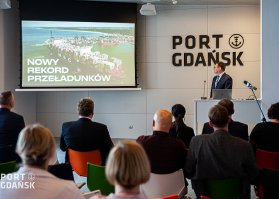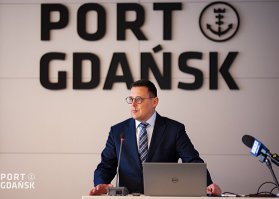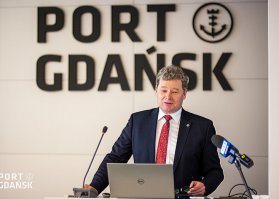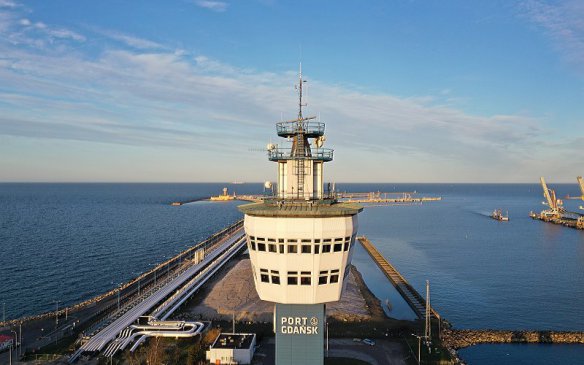New Polish record in transshipments

The Port of Gdansk set a new record in transshipment volume, having handled more than 52 million tonnes in 2019.
"Our 2019 transshipment volume made us join the "heavyweight" class of ports handling over 50 million tonnes a year. This allowed us to consolidate our fourth position in the Baltic Sea. The top three positions are occupied by Russian ports: Ust-Luga, Primorsk, and St. Petersburg. And only two or three years ago, we were in the sixth position, outstripped by Klaipeda (Lithuania) and Gothenburg (Sweden)." said Adam Klos.
He stressed that last year’s transshipment result causes the Port of Gdansk to "aspire to join the top twenty European Ports".
The Port of Gdansk set a new record in transshipment volume, having handled more than 52 million tonnes in 2019. The company informed the public about its results for the past year during a press conference last Tuesday.
In 2019, the Port of Gdansk handled a total of 52,154,098 tonnes, which was a 6.4% increase compared to 2018. The PGA SA netted PLN 60.2 million in 2019, with the total revenues reaching PLN 257 million.
Lukasz Greinke, President of the Board at the PGA, pointed out that Gdansk’s port has been continually improving the volume of transshipment since 2011.
"Liquid fuels, general cargo, and coal had the highest share in transshipments at Gdansk’s port. Thanks to that, the Port of Gdansk has three stable pillars, which also make it a very universal seaport, and is not that much affected by any turbulence in individual cargo groups, which was the case recently in the cereal group, where the cereal market practically crashed," noted Lukasz Greinke.
Adam Klos, Commercial Director at the PGA, emphasised that Gdansk’s port has tripled its transshipment volume within the last decade.
The Port of Gdansk recorded increases in nearly all cargo groups. Just like in 2018, fuels demonstrated the best growth dynamics (an increase by nearly 13%) with a record result of almost 17.5 million tonnes. What contributed to larger amounts of fuels delivered by sea was the temporary halt in oil deliveries via the Friendship Pipeline. 33 more ships transporting liquid fuels than in 2018 called at the Port of Gdansk last year. The transshipment of gas also increased – by 38%.
Yet another achievement was the 12% growth in the volume of Ro-Ro cargo. This was caused by the launch of the second vessel, the "Nova Star" ferry, by the Polish Baltic Shipping Company, which increased the number of ferry calls by 52% and facilitated the daily service to Sweden.
After summing up the year 2019, the "other bulk cargo" group improved its 2018 result by 5.1%.
A growing number of commercial vessels have also been calling at Gdansk’s port. In 2019, there were a total of 3,036 such calls, which means an increase of 112 calls compared to 2018.
In the 2019 transshipment structure, general cargo was predominant (44% share in the total volume), followed by liquid fuels (34% share in total transshipments) and coal.
In 2019, the Port of Gdansk recorded a decrease in the transshipment of timber, among others (by 40.4%). Such considerable differences over the years 2018-2019 were the result, among others, of the 2017 natural disaster. The total volume of timber obtained after the most destructive windstorm of the century was 8.6 million cubic metres. Moreover, timber is now primarily transshipped in containers and included in the containerised general cargo category.
Within the next three years, the PGA intends to spend nearly PLN 1.3 billion on investments. In 2019, it allotted almost PLN 390 million for this purpose, including PLN 51 million from the resources of the European Union.
Source: Polish Press Agency






